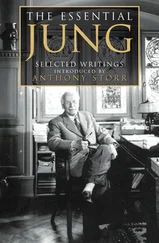‘You finish! You are idiot,’ said Gurdjieff angrily. ‘You finish! No. You begin. I finish.’ It was clear that Wright had met his match. 36
Wright had many guru-like characteristics himself, so that it is not surprising to learn that these two autocrats found themselves in competition. Even so, Gurdjieff won Wright over. Shortly after Gurdjieff’s death, when Wright was receiving a medal in New York, he interrupted proceedings to announce: ‘The greatest man in the world has recently died. His name was Gurdjieff.’ 37
Olgivanna appears to have acquired or developed a number of Gurdjieff’s less engaging traits. Draftsmen, apprentices and their wives were supposed to sit at Olgivanna’s feet whilst she gave them instructions and mercilessly criticized their failings. They even had to undergo the ordeal of listening to Wright reading from Gurdjieff’s writings. 38As she became older, she became more and more dictatorial, and, after Wright’s death, became a ‘despotic and jealous’ widow with whom scholars and institutions preferred not to negotiate. 39
Adherents of Gurdjieff’s teaching recount with satisfaction that he did not bring pressure upon followers to stay with him, and in fact often dismissed them. This is interpreted as indicating his desire that they should become independent of him. In some cases, it may rather have been his perception of impending apostasy: gurus generally prefer to rid themselves of potential dissidents rather than be deserted. Ouspensky, Gurdjieff’s most devoted disciple and interpreter, began to lose confidence in him as a person as early as 1917. This seems to have been precipitated by Gurdjieff’s arbitrary dispersal of the group he had assembled around him in Essentuki. Ouspensky continued to believe in the authenticity of Gurdjieff’s vision and teaching which he accepted as having been handed down from some ancient, esoteric source, but found the man himself more and more intolerable. Ouspensky formally broke off relations in January 1924, and forbade his own pupils to communicate with Gurdjieff or refer to him. 40
A. R. Orage, the talented editor of the New Age , had abandoned literary life in London for life at the Prieuré, and later moved to New York, where he set up his own Gurdjieffian groups, and whence he sent large sums of money to Gurdjieff. During the seven years of his close involvement with Gurdjieff, he produced practically no work of his own. As John Carswell puts it: ‘The most notable English editor of his time had become a mysterious exile owing obedience to an Armenian magus.’ 41Orage’s devotion was tested to the limit by Gurdjieff’s incessant demands for money, and by the abuse heaped upon him when he did not instantly obey. His allegiance was further undermined by his wife, Jessie Dwight, whom he married in 1927, and who had hated her visit to the Prieuré. Eventually, Gurdjieff, realizing Orage’s disillusion, turned up in New York when Orage was temporarily absent, assembled Orage’s group, denounced Orage and required each member to sign a written declaration that they would have nothing further to do with their instructor. Some did so; others refused. Orage, summoned back from England, demanded to see Gurdjieff, and, after remarking that he too repudiated the Orage created by Gurdjieff, signed the document denouncing his own teaching.
J. G. Bennett gives a list of close adherents whom Gurdjieff deliberately dismissed. Bennett himself left the Prieuré in 1923 and did not see Gurdjieff again until 1948, the year before he died. Even Fritz Peters, who had been greatly influenced by Gurdjieff in childhood, and who, as we have seen, turned to Gurdjieff when he was seriously depressed as an adult, wrote: ‘He began to seem to me in a very excellent phrase “a real, genuine phony.”’ 43
By the beginning of 1932, it became clear that the Château du Prieuré was no longer financially viable. Gurdjieff habitually overreached himself financially and American support fell away after the crash of 1929. The Institute for the Harmonious Development of Man finally closed in May. But Gurdjieff himself continued to flourish. He lived in Paris throughout the German occupation of the city during the Second World War. Characteristically, he obtained credit from various food shops by persuading them that an American pupil had given him an oil well in Texas which would ensure that their bills would be settled as soon as the war was over.
Gurdjieff’s cosmogony can only be described as fantastic. Reviewing his picture of the universe, it is hard to understand that any intelligent, educated person could believe in it. Yet disciples struggled to read All and Everything as if its incoherence must contain esoteric wisdom; as if it was their fault if they did not understand it rather than the author’s inability to construct a credible picture of man and the universe or to write intelligibly. When Gurdjieff had a car accident in July 1924 which nearly killed him, he said that this accident was ‘the manifestation of a power hostile to his aim, a power with which he could not contend’. 43This suggests an underlying paranoid belief system. In reality, he was so dangerous a driver that his followers avoided being driven by him whenever possible. Perhaps he was referring to the adverse planetary influences which, he claimed, had caused the First World War. Gurdjieff had the bizarre notion that, from time to time, planets might approach each other too closely. The resulting tension would cause human beings to slaughter each other without their realizing that they were merely pawns in a cosmic game.
Although Gurdjieff’s picture of the universe can confidently be dismissed as rubbish, it is possible to salvage a few valuable ideas from what he taught. Gurdjieff believed that man had obligations as well as rights. He did not think that the world was made for man, or that progress consisted in further technological domination of the environment. He considered that man had lost touch with the meaning of his existence, which was to fulfil a cosmic purpose rather than merely to satisfy his desires. Now that we realize that we are destroying the earth we live on, Gurdjieff’s view that man should serve the world rather than exploit it seems apposite. His notion that most people are ‘asleep’ and are driven by their instincts to behave automatically rather than with conscious intention is probably true of the majority. Some of the charisma which Gurdjieff undoubtedly manifested sprang from his own capacity to live intensely in the moment. One pupil recalled his saying:
You live in the past. The past is dead. Act in the present. If you live as if you have always lived, the future will be like the past. Work on yourself, change something in yourself, then the future perhaps will be different. 44
Some of those who practised Gurdjieff’s techniques for awakening people and transforming them into beings who could direct their own destinies certainly claimed benefit, but Claire Tomalin, in her biography of Katherine Mansfield, is almost certainly right in her summing up.
Whether Gurdjieff’s methods for righting the internal balance of his disciples had much, or any, merit is another matter. Since the whole thing depended on his personality, and made no scientific claims (as psychoanalysis did) or cosmological and moral claims (as most brands of Christianity did), it remained an amateur, ramshackle affair, and although Gurdjieff aroused passionate hate as well as love, his system seems to have done little lasting damage, and obviously allowed some people to change direction in a way that seemed helpful to them. 45
As we have seen, Gurdjieff was, by his own admission, an accomplished confidence trickster who had no hesitation in deceiving other people and extracting money from them when he needed to do so. Confidence tricksters are successful at deception because they are more than halfway to believing in their own fictions. Was Gurdjieff anything more than this? I suggested earlier that he could not have constructed his elaborate cosmogony merely in order to deceive. Gurdjieff’s picture of the universe, whether learned from esoteric sources or constructed by himself, provided him with his own myth, his own answer to the problem of the meaning of life for which he had sought a solution during his twenty years of travel. This myth was akin to a religious revelation. It gave him the certainty of faith. It was his own conviction that he had discovered the answer which made him charismatic and persuasive. Even if some of his followers could not accept or understand all his cosmic doctrines, they still believed that he knew ; a phenomenon which we shall encounter when discussing other gurus.
Читать дальше











